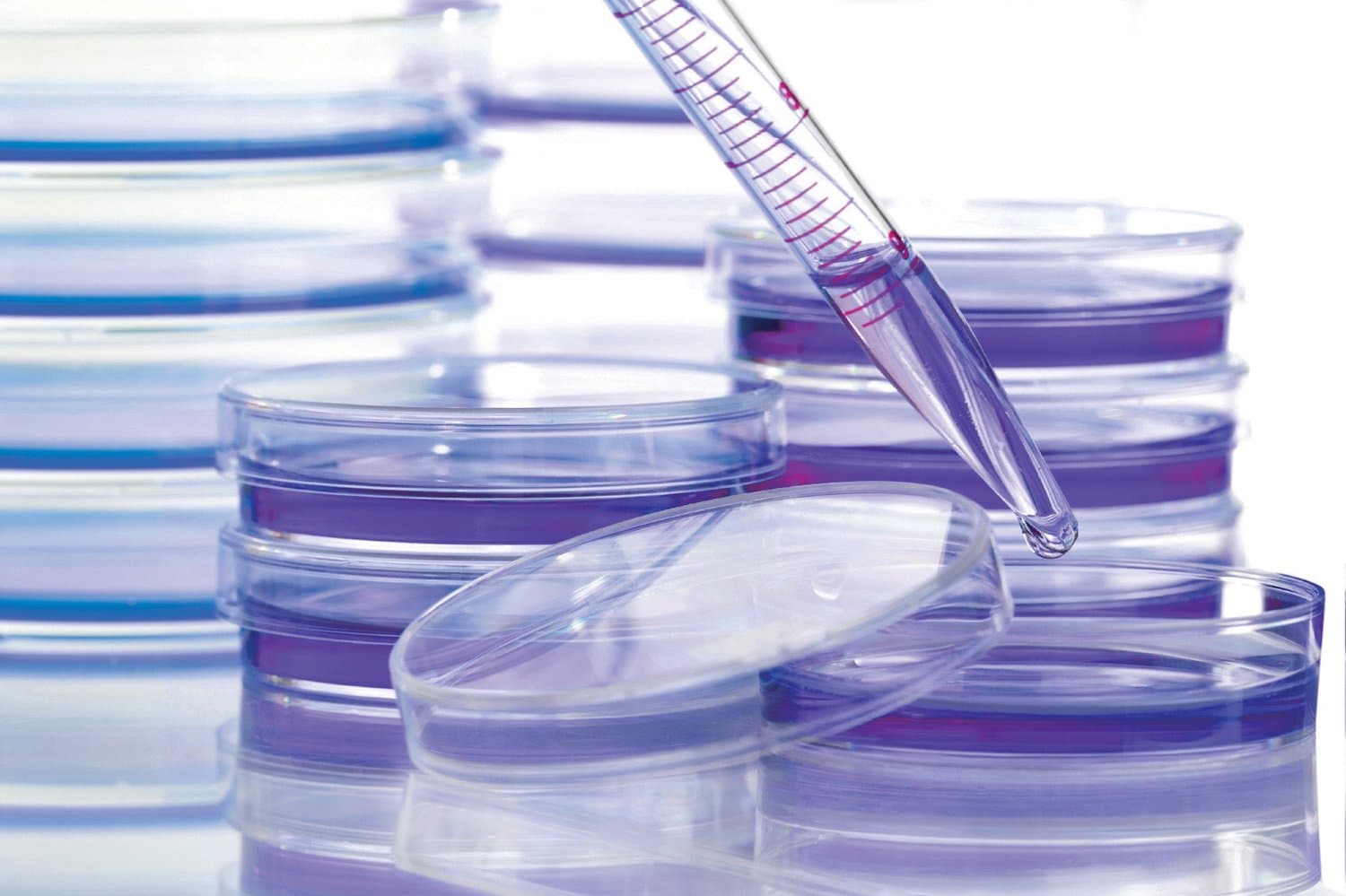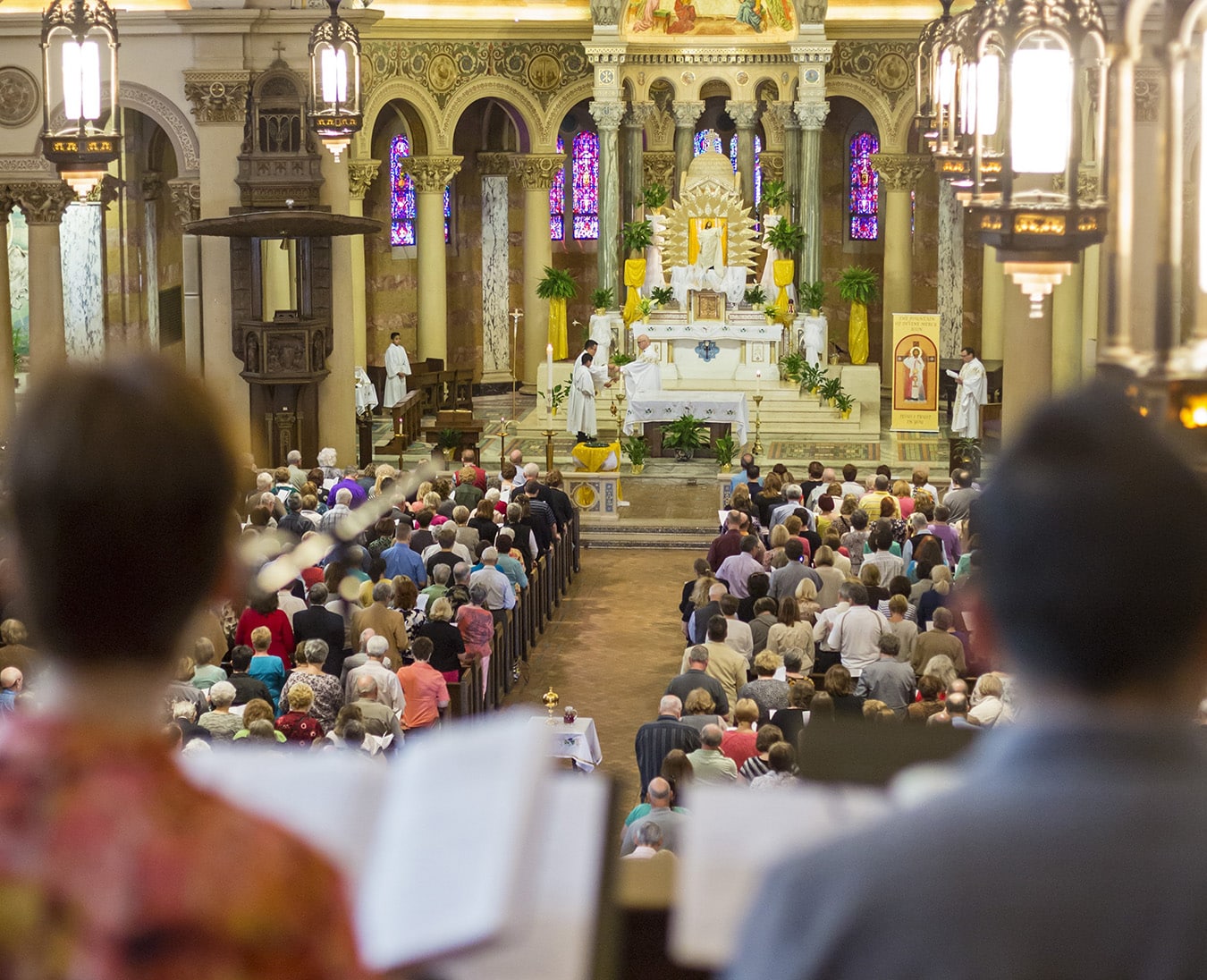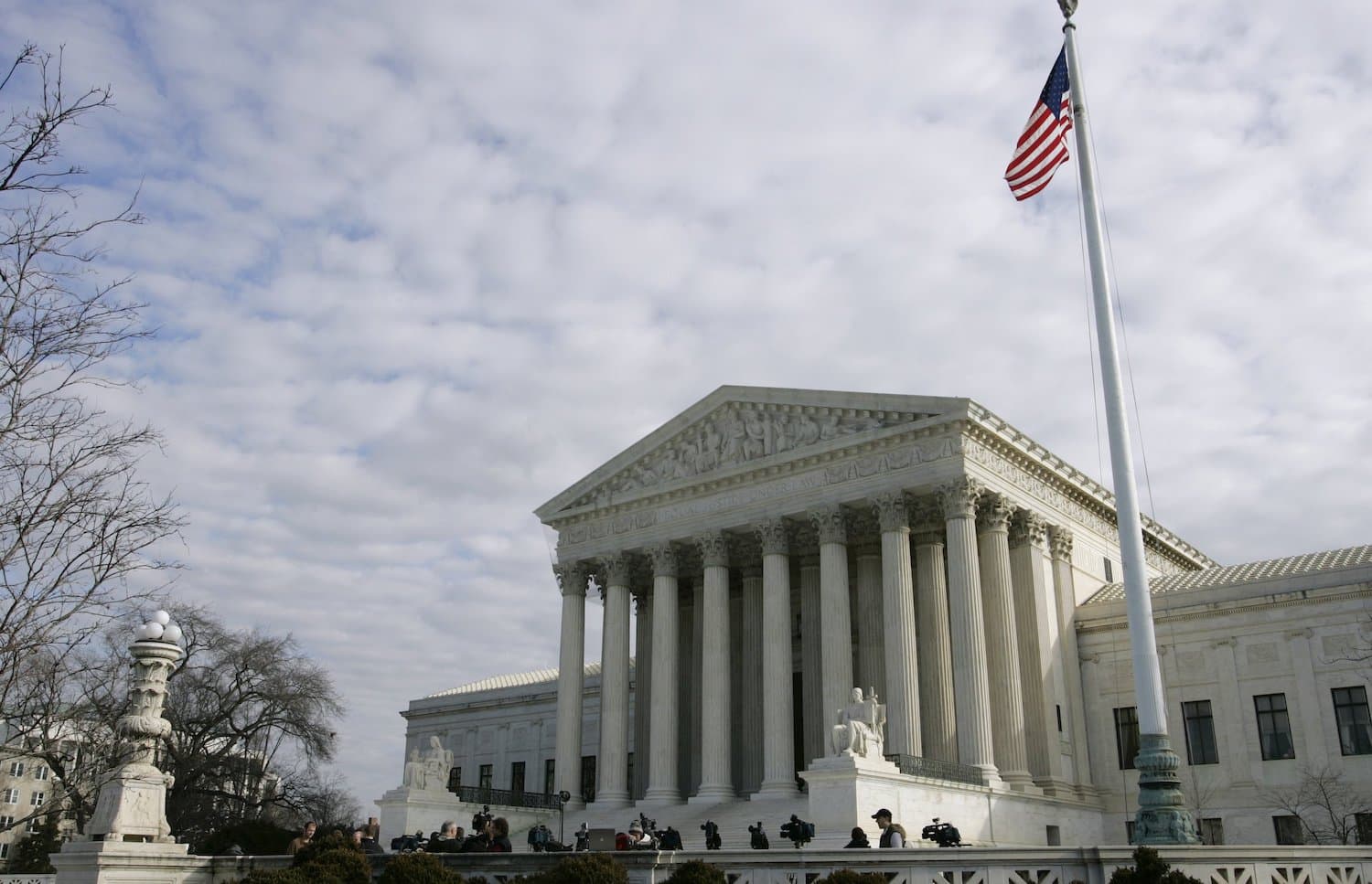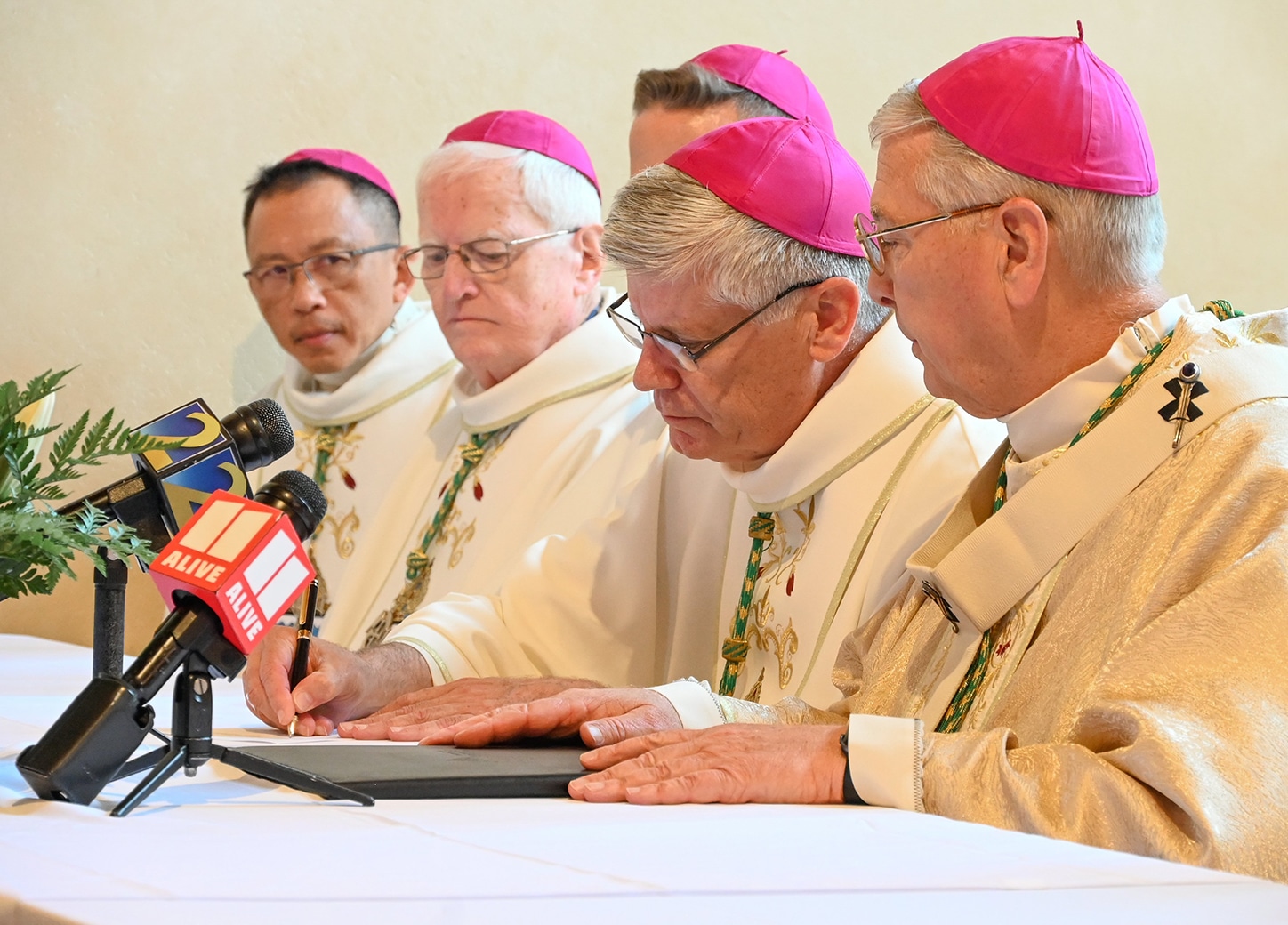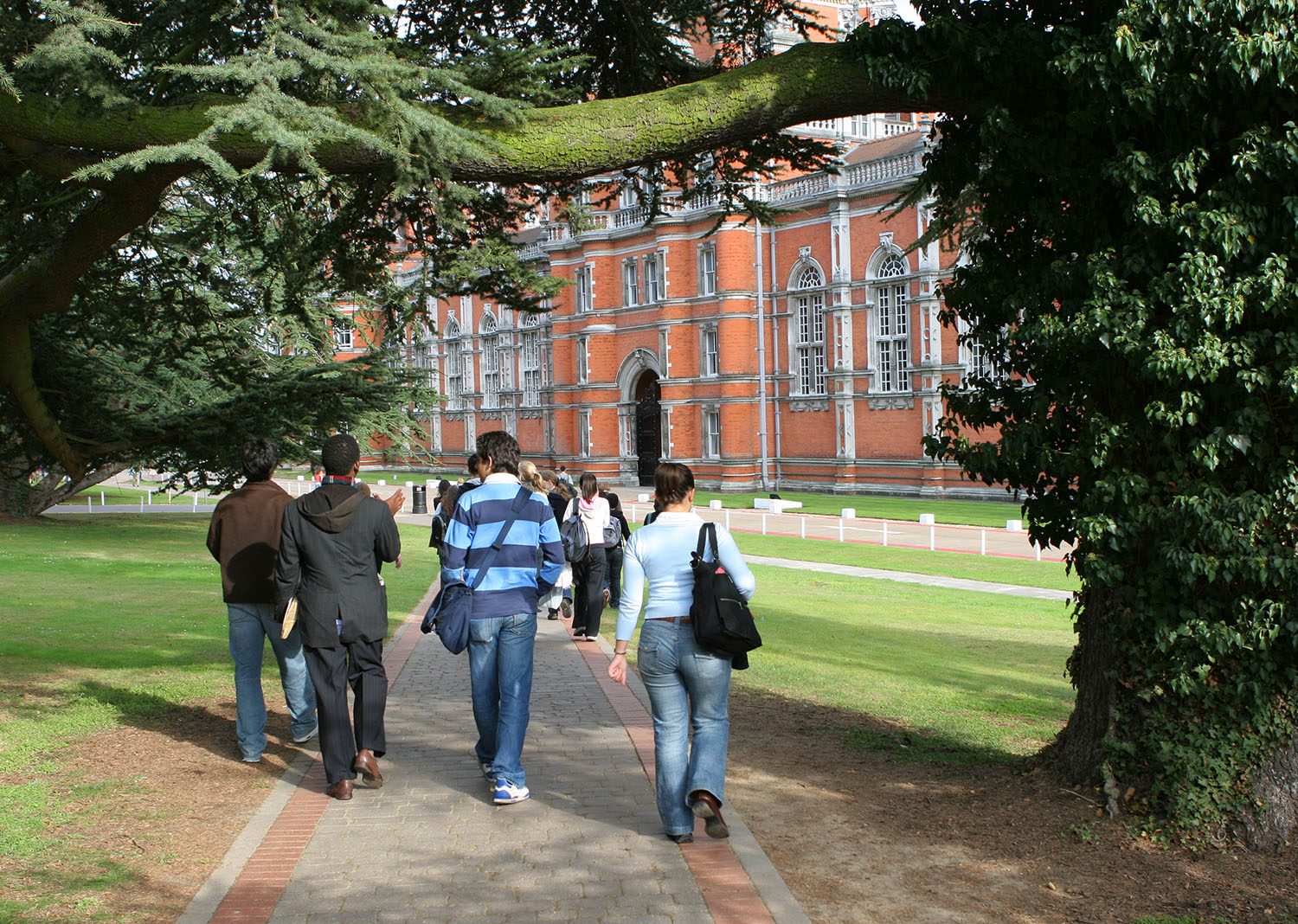(OSV News) — When the International Society for Stem Cell Research recently held its annual meeting in Boston, the more than 4,000 assembled scientists from 75 countries were promised “the future starts here.”
That future, they were told — in a plenary address by professor Magdalena Zernicka-Goetz of the University of Cambridge in England and the California Institute of Technology — now includes synthetic human embryos.
“We can create human embryo-like models by the reprogramming of (embryonic stem) cells,” Zernicka-Goetz announced.
No eggs or sperm were used; the “models” were instead grown from single living stem cells, which were derived from a real human embryo. They were not developed beyond a 14-day period, since the regulations governing the research use of human embryos do not allow for it in the United Kingdom and most other countries.
After something of a media uproar ensued, Zernicka-Goetz took to Twitter: “These tiny clusters of cells mimicking aspects of post-implantation human embryos that we and others make, have no developmental potential and are not real embryos,” she posted. “Nevertheless, they help to understand why many pregnancies fail.” Another tweet emphasized, “It is important to stress that these are not synthetic embryos, but embryo models and our research isn’t to create life, but to save it.”
It’s not yet the Central London Hatchery of Aldous Huxley’s dystopian novel “Brave New World” — where natural birth no longer existed and babies were mass-produced from lab-grown embryos. But the announcement by the International Society for Stem Cell Research, and another like it at the Weizmann Institute of Science in Israel, nonetheless raised ethical and moral questions from two prominent Catholic experts who spoke to OSV News.
“The fundamental ethical (and public) question here is whether these ’embryoids’ are living human embryonic organisms that cannot develop throughout all the gestational stages merely because of temporary technical limitations, or are they just a laboratory artifact that cannot be rightly termed an organism,” said professor O. Carter Snead, director of the de Nicola Center for Ethics and Culture at the University of Notre Dame.
“If the former,” Snead explained, “then we are back to the long-standing embryo ethics debates begun many decades ago with the dawn of in vitro fertilization. We Catholics, along with others who acknowledge the intrinsic equal dignity of every human being, at all stages of development from conception to natural death, oppose this practice and support alternative avenues of research that do not involve the use and destruction of living human embryos,” said Snead.
Father Tad Pacholczyk, director of education and staff ethicist at the National Catholic Bioethics Center, voiced a similar concern.
“Since these synthetic embryos were developed from embryonic stem cells, which were originally obtained by destroying a human embryo, it is also worth noting that we have an inherent ethical problem right at the origins of this newly announced technology,” Father Pacholczyk told OSV News.
“The big question hanging over this research would be: Are human ‘synthetic embryos’ really embryos?” asked Father Pacholczyk. “If they are, we have walked right into the ethical landmine of creating young humans for research or experimental purposes, albeit by an unusual method.”
The research use and destruction of a living human embryo — as “an organism of the human species,” Snead said — has always been a controversial bioethical issue, as is the creation of human embryos for the same purpose.
The Catechism of the Catholic Church states, “Since it must be treated from conception as a person, the embryo must be defended in its integrity, cared for, and healed, as far as possible, like any other human being …. It is immoral to produce human embryos intended for exploitation as disposable biological material” (2274-2275).
Father Pacholczyk stressed that “synthetic embryos behave like regular embryos in many ways, growing similarly and generating cells that typically go on to form important parts like the placenta, yolk sac, etc.”
Furthermore, the biological accuracy of terms such as “synthetic” and “non-embryonic” is not without need of clarity.
“The fact that these synthetic embryos might fail to cause a pregnancy when implanted doesn’t necessarily mean they aren’t real embryos,” said Father Pacholczyk. “Sometimes women’s pregnancies fail through miscarriages not because their embryonic child was ‘not an embryo,’ but because their embryonic child had some kind of defect.”
This, Father Pacholczyk observed, “raises the question of whether synthetic embryos might actually be real embryos that have developed some kind of defect through laboratory manipulations and procedures. It seems unsafe to start from the assumption that they are ‘synthetic’ and hence ‘non-embryonic,'” he said. “There is a lot at stake in synthetic embryo experiments, and researchers should be encouraged to attend to two critical ethical considerations: first, avoiding all human embryonic stem cells in their research; and second, studying synthetic embryos only in non-human animals,” advised Father Pacholczyk.
While news coverage has reported that uterine implantation of synthetic embryos is currently “illegal,” the relevant law itself is, Snead said, somewhat murky. “I’m not aware of any applicable law in the United States that would forbid it, in those many state jurisdictions that permit embryo research,” he commented.
Snead indicated that the Aderholt Amendment — a federal appropriations law — prevents “the creation or modification of an embryo to include a ‘heritable genetic modification.'” But if an embryoid genome is never modified, it may not apply. The Dickey-Wicker Amendment, Snead said, “might forbid federal funding for research in which such ’embryoids’ are created, destroyed or endangered, if they fall within its definition of ’embryo.'”
“This is definitely something the congressman is concerned about,” said Michael Finan, communications director to Rep. Chris Smith, R-N.J., who also is co-chair of the Congressional Pro-Life Caucus.
Since the international stem cell group’s research was only recently announced, Snead said he wants “to learn more about the scientific techniques involved in these experiments,” and qualified his comments accordingly.
“My ultimate advice for policymakers,” Snead added, “is to study the scientific and technical aspects carefully, think hard about what these synthetic beings are — living human organisms or something else? See how existing regulatory measures do or do not apply, and what changes must be made. Listen to all of the contending voices in this domain.”
“But in the meantime, just as in environmental policy, I would urge scientists and industry not to plunge ahead with any actions that might cause irrevocable harms, ethical or otherwise,” he added.

